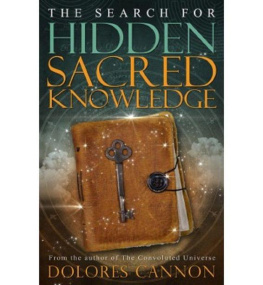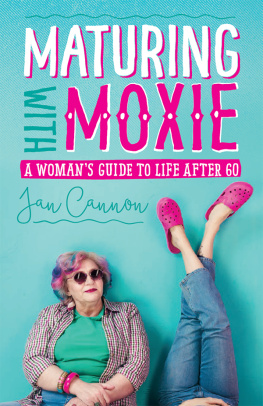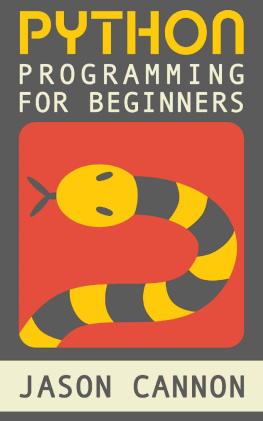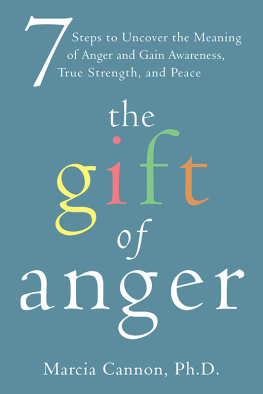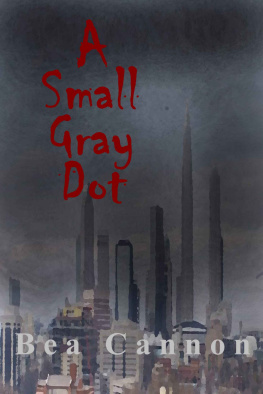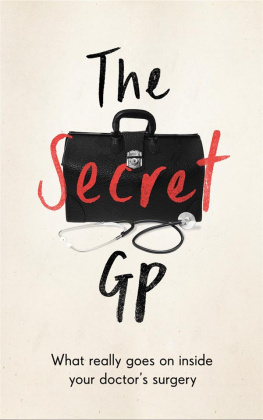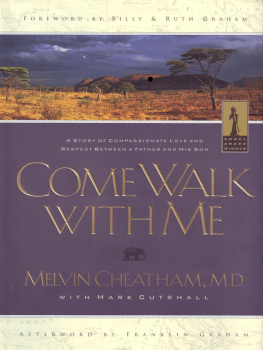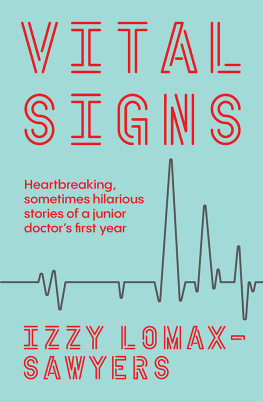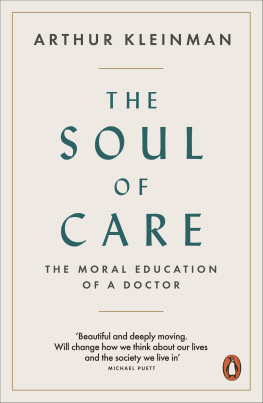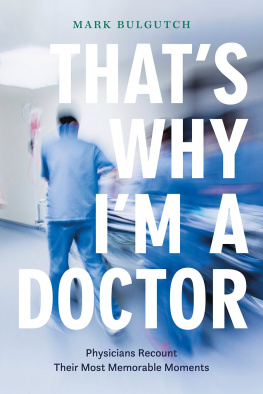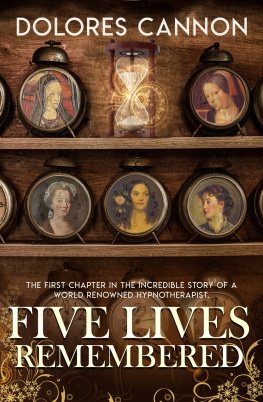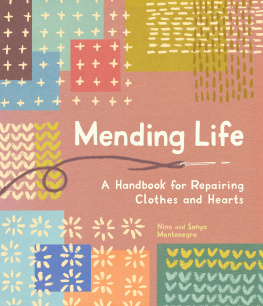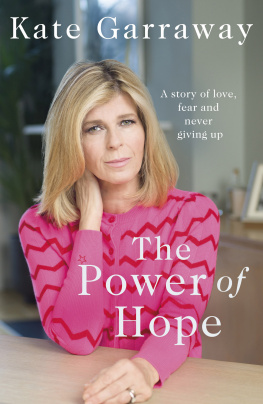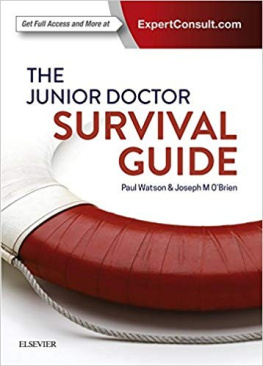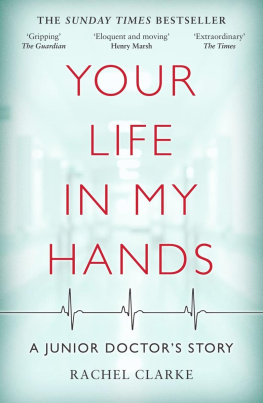Breaking & Mending
ALSO BY JOANNA CANNON
The Trouble with Goats and Sheep
Three Things About Elsie
Breaking & Mending
JOANNA
CANNON

First published in Great Britain in 2019 by
PROFILE BOOKS LTD
3 Holford Yard
Bevin Way
London
WC1X 9HD
www.profilebooks.com
Published in association with Wellcome Collection

183 Euston Road
London NW1 2BE
www.wellcomecollection.org
Copyright Joanna Cannon, 2019
The moral right of the author has been asserted.
All rights reserved. Without limiting the rights under copyright reserved above, no part of this publication may be reproduced, stored or introduced into a retrieval system, or transmitted, in any form or by any means (electronic, mechanical, photocopying, recording or otherwise), without the prior written permission of both the copyright owner and the publisher of this book.
A CIP catalogue record for this book is available from the British Library.
ISBN 9781788160575
eISBN 9781782834526
For Michaela
Breaking
We always strive to do the best for our patients, to provide the best possible care why do we not do the same for our colleagues?
The junior doctor
A few years ago, I found myself in A&E.
I had never felt so ill. I was mentally and physically broken. So fractured, in fact, that I hadnt eaten properly or slept well, or even changed my expression, for months. My hands shook. My eyes swam with too much seeing, and I sat in a cubicle, behind paper-thin curtains, listening to the rest of the hospital happen around me. It was the effort of not crying that stole the most energy. It felt as though the frame of my existence the fragile scaffolding that held me together was beginning to snap and splinter, and if no one reached out to help, if no one noticed, the very sense of who I was would soon be spilled from me and lost forever. I knew I was an inch away from defeat, from the acceptance of a failure I assumed would be inevitable, but equally, I knew I had to carry on. I had to somehow walk through it.
Because I wasnt the patient. I was the doctor.
Each time we visit a hospital, we see them. An army of scrubs and stethoscopes, travelling the corridors with a quiet confidence. We imagine, strangely, that they are invincible. That understanding the mechanism of a disease somehow prevents a person from contracting it. You will never find a cardiologist with angina, a respiratory physician cannot suffer with asthma, and a psychiatrist can never truly understand what its like to live with depression. Fallacies. All of them. But perhaps necessary fallacies because they help us to hold on to the belief that a doctor has the power to save us and if doctors are unable to save themselves, what hope can be offered to anyone else?
For some, though, a stethoscope is less of a protective talisman, and more of a risk factor, because it carries with it an unimaginable burden. The burden of what it means to be a doctor the internal and external pressure of a definition we have shaped and polished since childhood. A definition moulded by films and television shows, by books and soap operas and magazines. Doctors are objective, calm, knowledgeable. Doctors protect and heal and mend. Doctors fix things. You spend five years at medical school, learning how to fix things, only to arrive on the wards and discover very quickly that there are many, many things you will never be able to fix. During those five years, you sit in front of endless exam papers exam papers with empty white boxes waiting to be filled with the answers to what you would do in imaginary scenarios only to find that in many real-life situations, the very best thing you can do is absolutely nothing at all. As the textbooks transform into living, breathing people and the imaginary scenarios become a reality, you will eventually learn that being a good doctor really has nothing whatsoever to do with fixing people. You will also learn that a failure to mend doesnt make you a failure, and you will learn that an empty white box is sometimes the correct answer after all. But you will only learn these things after walking hundreds of miles of hospital corridors, navigating a landscape so alien and so challenging, you wonder why you ever chose to walk through it in the first place.
But you will learn. Eventually. As long as the landscape doesnt break you first.
Each time I read that another doctor has vanished from their life, that someone else has felt the need to disappear from this landscape, it takes my breath away for a moment, because it could have been any one of us. It most definitely could have been me, as I sat there in an A&E cubicle trying to work out how a job I had been so determined to do, and so desperate to be good at, had turned itself into my nemesis. I thought back to medical school, to all the past moments that had tied and knotted together and had led me to this one. I thought even further back, to my medical school interview, when I spoke with such passion about a profession I wanted so badly to be a part of. This was my dream, my ultimate goal, and yet it had turned into a nightmare so vivid and so brutal that I could hardly bear to look any more.
On that day, in the middle of a busy emergency department, as I tried to claw my way back from the edge of a cliff, if you had shown me a door marked escape, I would have gladly walked through it.
Stories
Before medical school, the idea of becoming a doctor was nothing but a faraway dream. A dream based on those early experiences of my childhood, my memories of our general practitioner, a family doctor, of the operation and rehabilitation for my club foot, of my appendectomy. Those brief but intense moments that found their way into my chronological life and somehow carved themselves deeper than others. That carving formed a draft image of what a doctor was. My memory of feeling safe among the fear, of great abilities, but mainly of kindness. Those memories were of the doctor I wanted to be.
The consultant
At your medical school interview, among the many topics you might be encouraged to speak about, there is only one question you know will definitely be asked, only one question you can actually prepare for:
Tell me, why do you want to become a doctor?
We all say I want to become a doctor because I like people, but what were really saying is that we like stories. Stories bind us together, stories unite us, and we tell our stories in the hope that someone out there will listen, and we will be understood.
Months later, those of us fortunate enough to be offered a place from that interview were thrown together on a grey September morning at the very beginning of medical school. We didnt realise that the experiences we were destined to share would bind us all for a lifetime, that walking together through the next five years would grow friendships, relationships even marriages and children because at that moment we were still strangers, held in the darkness of a lecture theatre, by a magical and breathless excitement.
It was our inaugural lecture. A learned and dazzlingly qualified professor stood on the stage before us, and he leaned on the podium and gazed out at his audience, in a learned and dazzlingly qualified silence, and we waited. All three hundred of us. When he finally spoke, he dug into the bones of how each of us felt. How we had felt in all the weeks beforehand, buying books from a list four pages long and staring endlessly at the timetable of our future selves. Being paraded in front of friends and relatives. Imagining. Daring to believe, but dismissing those beliefs as foolishness. We had all felt it that morning, as we walked or cycled, or drove to our new beginning. For every seat in that lecture theatre, there had been four other people who had wanted to sit there. Surely this meant we were capable? Surely this meant we were finally allowed to turn to long-held dreams and taste the possibility? Yet still we felt foolish, because it all seemed so ridiculous. So
Next page

